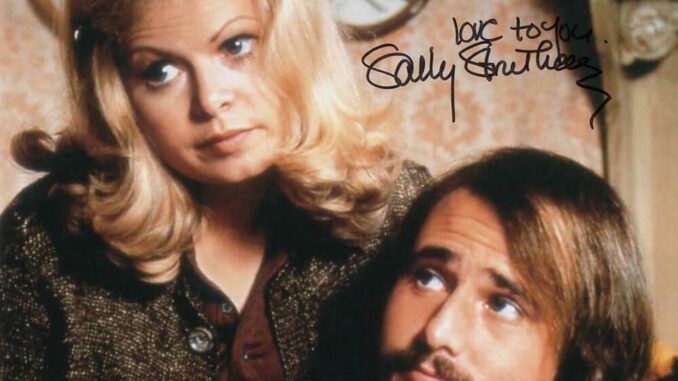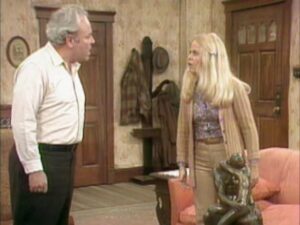
Funny as it is to think of people not getting that “Gilligan’s Island” is make-believe, their confusion about “All in the Family” is more understandable. Sitcoms had never gotten as real in their portrayal of working-class Americans before, from their prejudices to the way that Gloria, Mike, Gloria’s father Archie (Carroll O’Connor), and her mother Edith (Jean Stapelton) dressed and behaved. “The Bunkers came along and they flushed toilets,” Struthers noted. “They didn’t have good manners at the table. They reached over one another for food […] and they talked about real things.” She added:
“They peeled off the veneer. And you saw the less-than-perfect side of human beings. You saw the arguing and the vehemence and the bigotry. You can’t put the genie back in the bottle now. Everything got more honest after that.”

This, in turn, made it easier for people to recognize themselves in Gloria and her family. Shocking as it was to hear Archie spouting slurs and racial epithets on “All in the Family” (mind you, this was very much a case where depiction didn’t equate to endorsement), it was also a more honest depiction of white Americans than other comedy series provided at the time. If viewers didn’t like what they were seeing, then it was a chance for them to question why that was.
Struthers, despite the overwhelming nature of her experience, remains firmly “grateful” to this day. “And over the years the gratitude has grown because it continues to open doors,” she added, including paving the way to her successful voice acting career and other beloved live-action roles (like when she played Babette Dell on “Gilmore Girls”). “All in the Family” might’ve been pure fiction, but its impact on Struthers’ life and the television landscape was all too real.